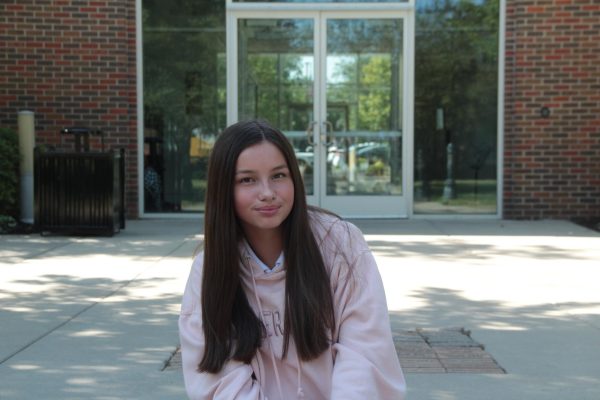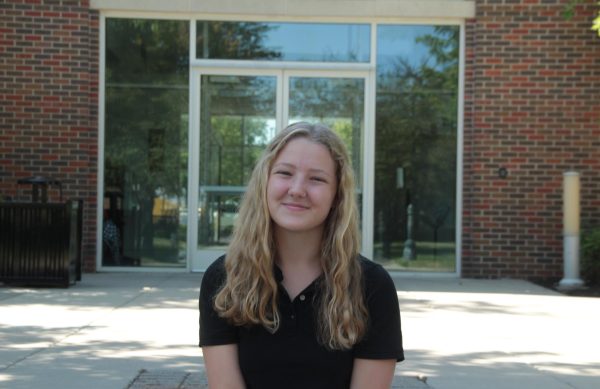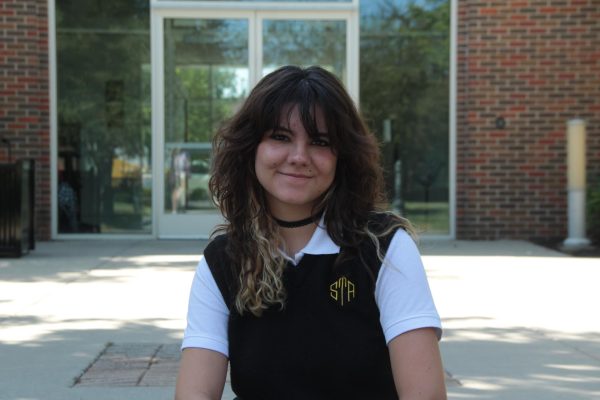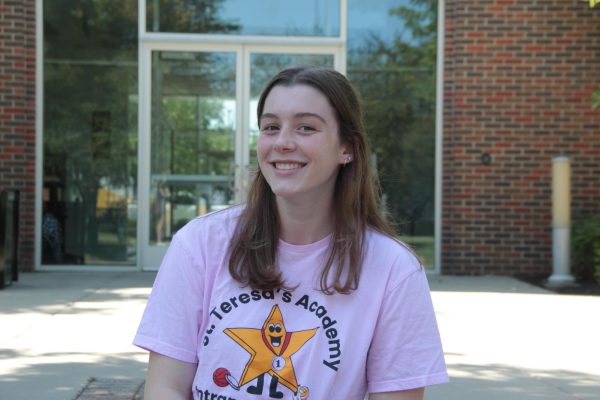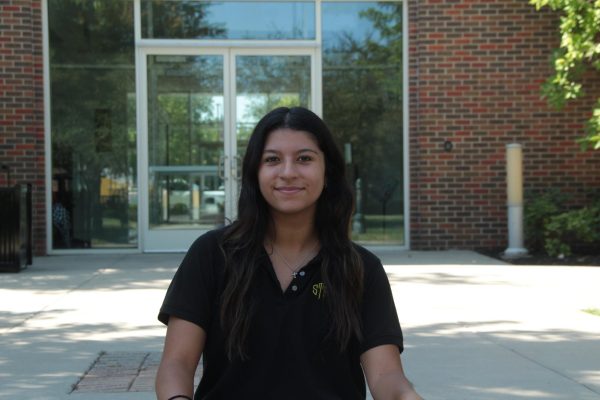Protests and politics: Teenagers have earned their right to vote
Through protests and political activism, teenagers under the age of 18 have earned their right to vote, yet they are still restricted by the Constitution.
December 2, 2019
A few weeks ago, I was sitting in history teacher Anne Papineau’s APUSH class when she excitedly asked who in our class would be able to vote in the 2020 presidential election. After watching as about half of my classmates raised their hands, I was disappointed as I could not raise mine. I will only be 17 in 2020 and will not turn 18 until 2021, meaning I will not be able to vote in the 2020 presidential election. I believe that the United States should lower its voting age to 15 in order to give teenagers the political say that they deserve.
In the United States, our most basic, important right is the right to vote. Each individual’s right to vote is what makes America a democracy, yet many of us cannot vote because we are underage. In the United States, everyone is guaranteed the freedom of speech and religion, regardless of their age, yet not everyone has the right to vote.
Teenagers have proven over time that we can be legitimately politically active. Whether protesting or organizing petitions, we have made our political opinions clear. For example, after the tragic school shooting at Marjory Stoneman Douglas High School, several teenage students stepped forward as activists. Emma Gonzalez, David Hogg, Jaclyn Corin, Cameron Kasky and Alex Wind formed the #NeverAgain movement and became active participants in the March for our Lives. In addition, STA students have also become involved, political activists. In fact, STA senior Kailee Ford helped organize STA’s involvement in Kansas City’s climate strike Sept. 20. Through these political protests and movements, teenagers have proven over and over that they are capable of forming their own viable political opinions. Yet, they are still denied the right to vote because of their age.
Allowing teenagers to vote could dramatically change national election results. According to a study by U.S. News, 56% of the youth polled supported free public college education for some (meaning free trade school or public school), while 55% supported Medicare for all. By allowing younger individuals to vote, many new government programs could be shifted or improved to better fit the opinions of those living in the United States.
Over time, some have argued that teenagers should not be allowed to vote because their brains are not yet fully developed. This could mean that they are incapable of making a decision as important as voting. However, this argument is not legitimate. Although 18-year-olds are typically acknowledged as adults, studies show that most brains do not fully develop until about age 25, showing that brain development does not currently play a significant role in deciding the voting age. And, of course, while I think that voting is incredibly important and that everyone should vote, if a teenager does not feel ready to vote, they can choose not to. However, the option would be open for those who would want to practice this right.
Also, teenagers are subject to the laws set by the government, yet they do not have any say in the lawmaking process. Some even have to pay taxes on the money they make while working, yet they have no say in how their money is used or in who governs their lives, as adults do. Additionally, teenagers have proven that they are responsible enough to be allowed to vote. In Missouri, teenagers are allowed to hold restricted driver’s license when they are 16. In many other states, 15 or 16-year-olds can hold a learner’s permit or driver’s license. Teenagers are given these rights and responsibilities, so we should be allowed to vote at a younger age.
While it would be illogical to allow younger children the right to vote, 15 years old would be the ideal time to open up this opportunity. As teenagers, we begin to expand our worldview as we enter high school. This allows us to gain valuable life experience and to learn who we want to vote for. Because of the responsibility that is placed on teenagers, whether it be a driver’s license, job or school—we are responsible enough to vote by age 15.
Personally, voting has always been a very important issue to me. Ever since I was old enough to be aware of politics, I have always had strong political opinions, but have never really had an outlet to express them. During a time with so many essential, life-changing political issues, such as climate change, abortion and gun control, I wish I could make my opinions known in a more concrete way then simply protesting or signing petitions.
After seeing the extreme disappointment and other negative emotions of myself and my friends after the presidential election of 2016, I truly believe that, if teenagers had been allowed to vote in that election, the results would have been different, and the U.S. would have a president that more individuals who live here approve of. As teenagers, we are forced to live under a government that we, often times, do not agree with and have no concrete say in. Since its creation, the citizens of the United States have worked hard to secure the right to vote for women and minorities. However, one group that is still being ignored is teenagers. Yes, we can protest and make our opinions heard, but, oftentimes, it feels like nobody is listening. The U.S. should lower the voting age to give us a concrete, permanent impact on politics.






